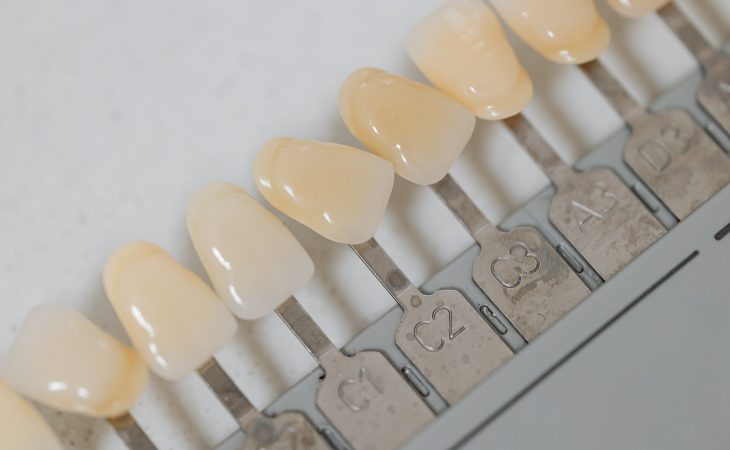Maintaining a healthy smile isn’t only about brushing and flossing at home, although they’re crucial habits for sure. Equally important is making regular visits to your dentist for professional cleanings. Now, you might be wondering how often these trips should be on your calendar. Do we really need dental cleanings as often as we’ve been told, or is it a ploy to keep the dental chair warm? Let’s brush up on the facts.
The Magic Number for Dental Cleanings
So, how often should your pearly whites get this professional TLC? The common rule of thumb has been every six months. Why six months, you ask? It’s based on the rate at which cavities and gum disease can develop. However, not everyone’s mouth walks on the same wild side of dental woes. Some people are just more prone to dental issues and might need more frequent cleanings, while others can go a bit longer between visits.
Individual Needs
Here’s where it gets personal. Your oral health is as unique as your fingerprint, so your dental cleaning interval might be different from your friends or family. Our dental health is influenced by a multitude of factors, such as:
- Diet and nutrition
- Oral hygiene habits
- Genetic predisposition
- Overall health and medications
- Lifestyle choices (e.g., smoking, drinking)
Taking all these into account, your dentist will make a professional judgment call on how often they should see you for a cleaning. It could be more than twice a year, or it could be less.
Risk-Based Approach
Dentistry is embracing a risk-based approach where cleaning schedules are tailored to individual needs. A healthy mouth might only require annual cleanings, while a plaque-prone one may need checks every three to four months. Regular cleanings act as preventive care, nipping potential issues in the bud and saving you from future toothaches and dental emergencies. Trusting your dentist’s recommended frequency is similar to ensuring your smile’s longevity.
Why You Should Take Professional Dental Cleaning Seriously
It’s tempting to think of dental cleanings as optional, but there’s solid proof that these sessions are essential for staving off decay and gum disease. Regular cleanings can prevent not-so-fun dental issues like cavities and gingivitis and even help manage chronic conditions like periodontitis.
Here’s why professional cleaning is a big deal:
- Tartar Removal: Tartar, the hardened form of plaque, can only be removed with professional tools. If left unchecked, it can lead to inflammation and gum disease.
- Stain Banishment: Love coffee or wine? Regular cleanings can help fight the stains that these beloved beverages leave behind.
- Fresher Breath: Halitosis, or chronic bad breath, often stems from gum disease. Cleanings help keep your gums healthy and your breath fresh.
- Overall Health: There’s a link between oral health and systemic health conditions. By keeping your mouth in tip-top shape, you’re also helping your entire body stay healthier.
Ultimately, dental cleanings are a key ingredient in the recipe for a healthy mouth.
Signs It’s Time for a Dental Cleaning
If you’re on the fence about whether it’s time to visit the dentist, here are some red flags that should have you speed-dialing your local dentist:
- Your gums are angry, red, swollen, or bleed when you brush or floss.
- You can see tartar buildup (it looks like a yellow or brownish deposit) near the gum line.
- It’s been over six months since your last dental visit (even if you don’t notice any problems).
- You have chronic bad breath that won’t take a hike with regular brushing.
If you’re experiencing any of these, don’t hesitate to make an appointment. It’s way better to catch issues early than to wait until they become a major headache.
Keeping Up with Dental Cleanings During Life Changes
During significant life changes, such as pregnancy or starting new medications, your oral health can be impacted. Hormonal changes and dry mouth can increase the risk of dental issues. It’s important to communicate with your dentist during these times to adjust your dental cleaning schedule as needed. Frequent cleanings may be necessary to prevent problems and ensure your oral health remains a priority through all of life’s transitions.
What to Expect at Your Dental Cleaning
Okay, let’s say you’re ready to book that dental cleaning appointment. What can you expect? Here’s a quick rundown:
- Review of Oral Health History: You’ll chat about any recent issues or changes in your oral health.
- Physical Examination: Your dentist or hygienist will check your teeth and gums for any signs of trouble.
- Scaling: This is where they remove all the tartar buildup.
- Polishing: After scaling, they’ll polish your teeth to remove surface stains and smooth the enamel.
- Flossing: Yes, they’ll floss your teeth, too, getting into those areas that might be missed at home.
- Fluoride Treatment: This is the final step to help protect your teeth until your next visit.
A cleaning is painless for most people, but if you’re anxious or sensitive, talk to your dentist. They can help ease your nerves.
Finding the Right Dental Professional
Choosing the right dental professional for your cleanings is super important. If you’ve had a less-than-stellar experience before or if you’re seeking a new dental home, consider looking for a Nepean dentist. You’ll want one who listens to your concerns, explains things in plain English, and has a gentle touch. A good dentist will make you feel comfortable, keep you informed, and, most importantly, care about the health and beauty of your smile.
Final Thoughts
Regular dental cleanings are more than just a routine; they’re a customized cornerstone of oral health tailored to each person’s needs. The frequency of cleanings may vary, with some needing more frequent care than others. Regular visits help to prevent dental problems and maintain overall health. Ensure you consult with your dentist to determine the best cleaning schedule for your unique smile and keep up with appointments to enjoy a lasting, healthy grin.








